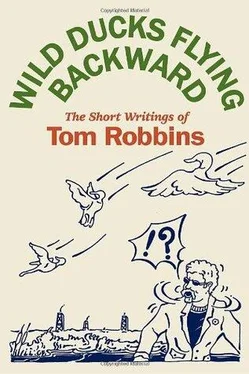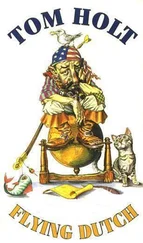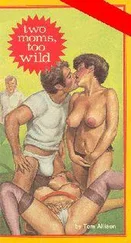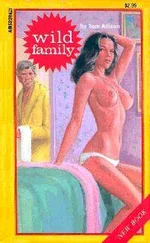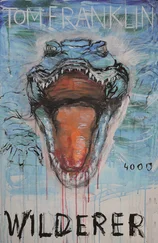Crazy wisdom is, of course, the opposite of conventional wisdom. It is wisdom that deliberately swims against the current in order to avoid being swept along in the numbing wake of bourgeois compromise, wisdom that flouts taboos in order to undermine their power; wisdom that evolves when one, while refusing to avert one’s gaze from the sorrows and injustices of the world, insists on joy in spite of everything; wisdom that embraces risk and eschews security, wisdom that turns the tables on neurosis by lampooning it, the wisdom of those who neither seek authority nor willingly submit to it.
Oddly enough, one of the most striking illustrations of crazy wisdom in all of western literature occurs in a pedestrian piece of police pulp by Joseph Wambaugh. The Black Marble is so stylistically lifeless it could have been printed in embalming fluid, but the rigor mortis of its prose is temporarily enlivened by a scattering of scenes that I shall attempt to summarize (although it’s been decades since I read the book).
As I remember it, a relatively inexperienced member of the Los Angeles Police Department is transferred to the vice squad. No sooner does the new cop report for duty than he’s introduced to a strange lottery. There is, it seems, an undesirable beat, a section of the city that no vice cop ever wants to patrol. It’s a sleazy, filthy, volatile, extremely dangerous area, full of shooting galleries and dark alleys and not a donut shop in sight. So great has been the objection to being assigned to that sinister beat that the precinct captain has devised a raffle to cope with it. At the beginning of each night shift, he produces a bag of marbles, every marble white save one. One by one, the cops reach in the bag and pull out their fate. The unfortunate who draws the single black marble must screw up his spine and descend that evening into the urban hell.
Around the drawing of the marbles there’s a considerable amount of tension, and the new man quickly succumbs to it. Just showing up for work is twice as stressful as it ought to be. In the station house, negativity is prevalent, jovial camaraderie rare.
The new cop draws the black marble a couple of times and finds the dreaded zone to be as violent and unsavory as advertised. However, he not only survives there, he learns he can tolerate the beat reasonably well by changing his attitude toward it, by regarding it less as a tribulation than as some special opportunity to escape routine and regularity, by appreciating it as an unusual experience available to very few people on the planet. Slowly, his anxiety begins to evaporate.
One night he shocks his comrades by emptying the bag and deliberately selecting the black marble. The next night, he does it again. From then on, he simply strolls into the station and nonchalantly requests the black marble. He no longer has to fret over the possibility of losing the draw. For better or worse, he controls his destiny.
Ordeal now has been transformed into adventure, stress into excitement. The transformer is himself transformed, his uptightness replaced first by a kind of giddy rush, then by a buddhistic calm. Moreover, his daring, his abandon, his serenity, is contagious. Vice squad headquarters gradually relaxes. Liberated, the whole damn place opens up to life.
And that, brothers and sisters, though Wambaugh probably didn’t intend it, is crazy wisdom in action.
Admittedly, when the cop made the short straw his own, when he seized the nasty end of the stick and rode it to transcendence, he put himself in extra peril. That’s par for the course. Only an airhead would mistake the left-handed path for a safe path.
While serious playfulness may be an effective means of domesticating fear and pain, it’s not about meowing past the graveyard. No, the seriously playful individual meows right through the graveyard gate, meows into his or her very grave. When Oscar Wilde allegedly gestured at the garish wallpaper in his cheap Parisian hotel room and announced with his dying breath, “Either it goes or I go,” he was exhibiting something beyond an irrepressibly brilliant wit. Freud, you see, wasn’t whistling “Edelweiss” when he wrote that gallows humor is indicative of “a greatness of soul.”
The quips of the condemned prisoner or dying patient tower dramatically above, say, sallies on TV sitcoms by reason of their gloriously inappropriate refusal, even at life’s most acute moment, to surrender to despair. The man who jokes in the executioner’s face can be destroyed but never defeated.
When a venerable Zen master, upon hearing a sudden burst of squirrel chatter outside his window, sat up in his deathbed and proclaimed, “ That’s what it was all about!”, his last words surpassed Wilde’s in playful significance, constituting as they did a koan of sorts, an enigmatic invitation to rethink the meaning of existence. Anecdotes such as this one remind the nimble-minded that there’s often a thin line between the comic and the cosmic, and that on that frontier can be found the doorway to psychic rebirth.
Ancient Egyptians believed that when a person died, the gods immediately placed his or her heart in one pan of a set of scales. In the other pan was a feather. If there was imbalance, if the heart of the deceased weighed more than the feather, he or she was denied admittance to the afterworld. Only the lighthearted were deemed advanced enough to merit immortality.
Now, in a culture such as ours, where the tyranny of the dull mind holds sway, we can expect our intelligentsia to write off Egyptian heart-weighing as quaint superstition, to dismiss squirrel-chatter illumination as flaky Asian guru woo woo. Fine. But what about the Euro-American Trickster tradition, what about Coyote and Raven and Loki and Hermes and the community-sanctioned blasphemies of the clown princes of Saturnalia? For that matter, what about Dada, Duchamp, and the ’pataphysics of Alfred Jarry? What about Gargantua and Finnegans Wake, John Cage and Erik Satie, Gurdjieff and Robert Anton Wilson, Frank Zappa and Antoni Gaudí? What about Carlos Castaneda, Picasso, and the alchemists of Prague? Allen Ginsberg and R. D. Laing, Rahsaan Roland Kirk and Lewis Carroll, Alexander Calder and Italo Calvino, Henry Miller, Pippi Longstocking, Andrei Codrescu, Ishmael Reed, Alan Rudolph, Mark Twain, and the electric Kool-Aid acid pranksters? What about the sly tongue-in-cheek subversions of Nietzsche (yes, Nietzsche!), and what about Shakespeare, for God’s sake, the mega-bard in whose plays, tragedies included, three thousand puns, some of them real groaners, have been verifiably cataloged?
Obviously, while crazy wisdom may have been better appreciated in Asia, nuggets of meaningful playfulness have long twinkled here and there in the heavy iron crown of western tradition. (It was a Spanish poet, Juan Ramón Jiménez, who advised, “If they give you ruled paper, write the other way.”) The question is, when will we be hip enough (thank you, Fred) to realize that these sparklers aren’t mere rhinestones or baubles of paste? When will our literati — in many cases an erudite, superbly talented lot— evolve to the degree that they accord buoyancy and mirth a dime’s worth of the respect they bestow so lavishly on gravity and misfortune?
Norman N. Holland asked a similar question in Laughing: A Psychology of Humor, concluding that comedy is deemed inferior to tragedy primarily because of the social prevalence of narcissistic pathology. In other words, people who are too self-important to laugh at their own frequently ridiculous behavior have a vested interest in gravity because it supports their illusions of grandiosity. According to Professor Donald Kuspit, many people are unable to function without such illusions.
“Capitalism,” wrote Kuspit, “encourages the pathologically grandiose self because it encourages the conspicuous consumption of possessions which symbolize one’s grandiosity.” I would add that rigid, unquestioning allegiance to a particular religious or political affiliation is in much the same way also symptomatic of disease.
Читать дальше
